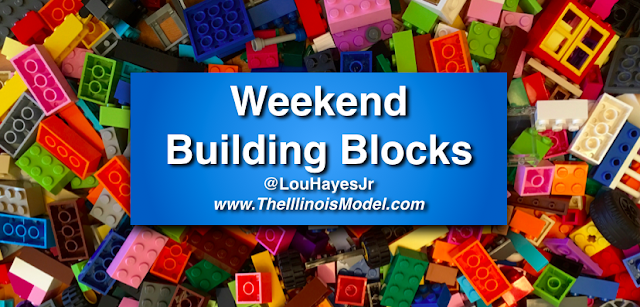Weekend Building Blocks - 21 JUL 2017
There's no value in collecting blocks unless you're connecting them to build something awesome!Product management. USMC drill instructors. Change is not hard. Biased algorithms. Expertise. Here are the pieces that I enjoyed this past week:
- Making Good Decisions as a Product Manager. Brandon Chu talks decision-making, risk management, prediction, and confidence levels. While his environment is different than most of my readers and followers, it certainly has a great deal of cross-over value. I'm not a supporter of the whole percentage thing...but I completely understand his use of the numbers to convey a point. What I find interesting is the discussion on time. How can we manipulate (or extend) time in our respective fields?
- Teaching United States Marine Instructors New Tricks: Developing Adaptability Through Experiential Learning. Fred Leland is a former Marine and retired police lieutenant. He moderates workshops for police trainers and USMC instructors/officers. Fred talks about his experience in the Adaptive Leader Training & Education Course on Parris Island. He touches on assessments, after-action reports, tactical decision games, outcomes-based learning, and memory science. Fred is the future of military and police education and training. Follow him!
- Stop Using the Excuse "Organizational Change is Hard." Nick Tasler argues the fallacy about failure rates in organizational change efforts. It does seem as though change is met with some sort of anxiety or fear of failure. Tasler points out how foolish this belief is. I immediate think of two concepts: adaptability and growth mindset. How about you?
- Biased Algorithms Are Everywhere, and No One Seems to Care. Will Knight sheds some light on mathematical models and the inherent hidden bias within them. In the race to objectify and speed up the decision-making process, computer algorithms and artificial intelligence are gaining attention. But at what cost to humanity?
- The Crisis of Expertise. Tom Nichols warmed my heart with this piece. He brings up flawed studies, researcher misconduct, ego, and fox vs hedgehog. Tom spends a great deal of time discussing "staying in one's lane" and the intellectual stretch to areas outside one's area of expertise. Lastly, how does society view the expert? Maybe more importantly...why?
I also published a blog this week:
- American Government is Not Ready for Facial Recognition & Artificial Intelligence. I saw a new push to incorporate facial recognition into police body worn cameras - selling it as a tool to find lost kids in a crowd. Be skeptical when the sales pitch is "for the kids." The pace of tech is too fast for law and ethics. We cannot keep up...nor predict the long term consequences of adopting these tools.
Be sure to connect with the authors above. And share their work if you found value in it.




Thanks for sharing this information. It's just the motivation I need right now in my career!
ReplyDelete